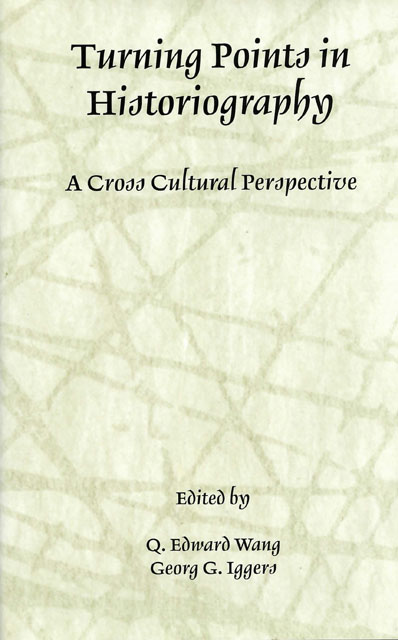Book contents
15 - Postscript
Published online by Cambridge University Press: 29 February 2024
Summary
This chapter could be called “Conclusion” if I as a commentator had been able to reach firm conclusions, much less a conclusion. Instead I am left with a substantial array of questions—not because the chapters have failed to be informative, but because the very richness and variety of the contributions have exhibited the puzzling condition in which the still infant study of the comparative history of historiography finds itself. We have been presented with cross-cultural studies, and, appropriately, several authors who come from various non-Western cultures. In consequence, as one might expect, there isn’t—and perhaps cannot be (?)—any real consensus on what they are all talking about, not to mention what they say about it.
The notion of “turning point” itself provides the best example of this conceptual diversity. Although, as Wang and Iggers say, the phrase may have entered ordinary historical work as late as the nineteenth century, it was borrowed from the structure of fictional narratives, especially plays. Aristotle in the Poetics was already discussing it as peripeteia (the Greek word for “sudden change”) in terms that, although designed to treat tragedy, are, I would argue, also applicable to all kinds of narratives, including historical ones. The peripeteia is the observable point in the drama when things suddenly change from one state of things to another. This usually means a change in fortune for the hero from prosperity to ruin—this after all generally happens in tragedies—but it can also work the other way.
At the peripeteia the plot takes its decisive “turn” towards an ending which could not be entirely foreseen, yet in retrospect seems predetermined. Thus, Hamlet has his chance, and does not take it, to kill King Claudius at his prayers. To have done so would have satisfied the demands of justice and brought a conventional revenge play to a satisfying conclusion; Hamlet's declared desire for a more horrid vengeance sets in train the actions which will leave all the principal characters except Horatio dead by the end of the play. It is particularly important to note that such turning points in the plot, though sudden, must be seen to arise from the “probable or necessary sequence of events.” The hero can't be undone merely by bad luck.
- Type
- Chapter
- Information
- Turning Points in HistoriographyA Cross-Cultural Perspective, pp. 325 - 338Publisher: Boydell & BrewerPrint publication year: 2001



